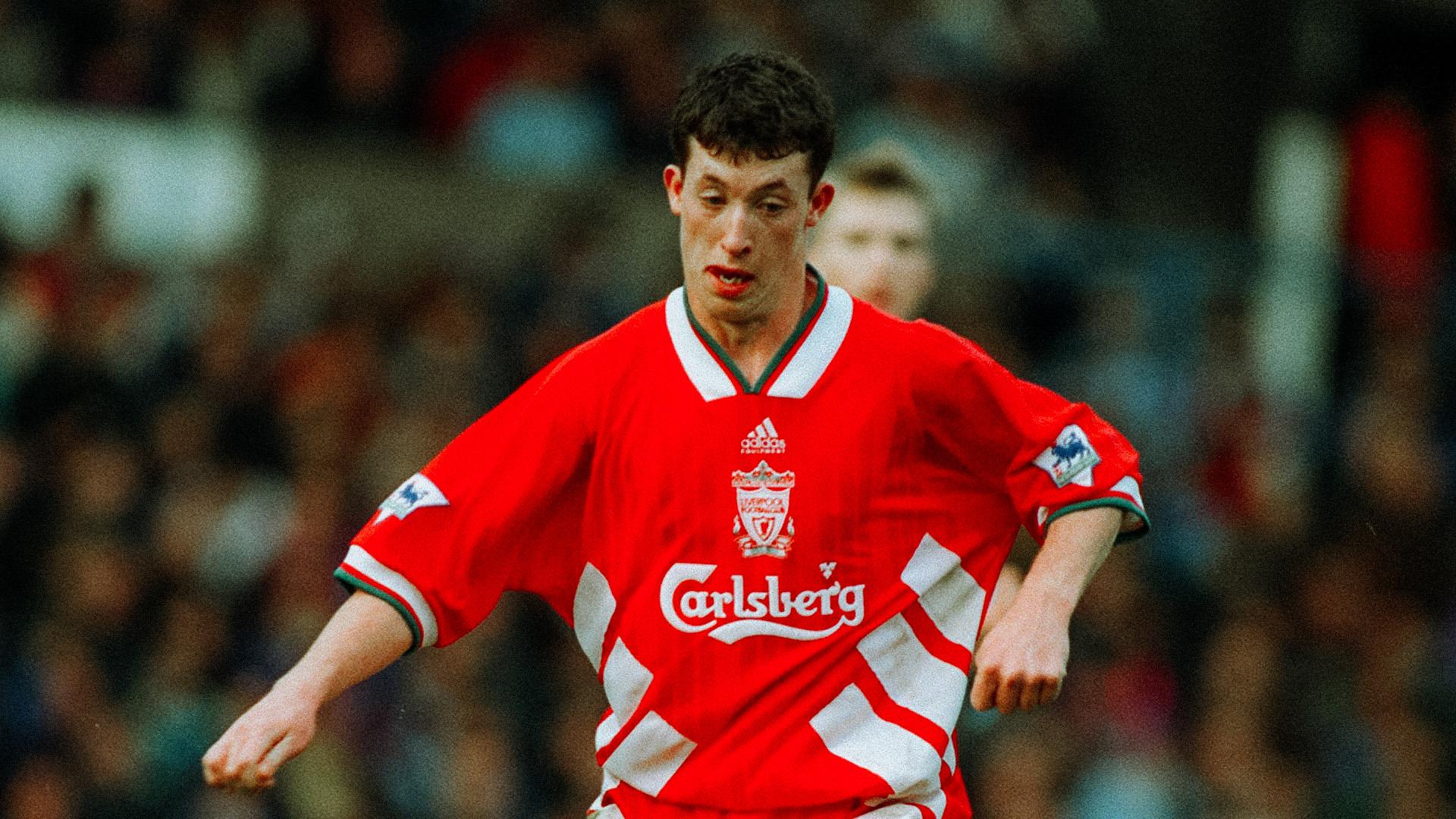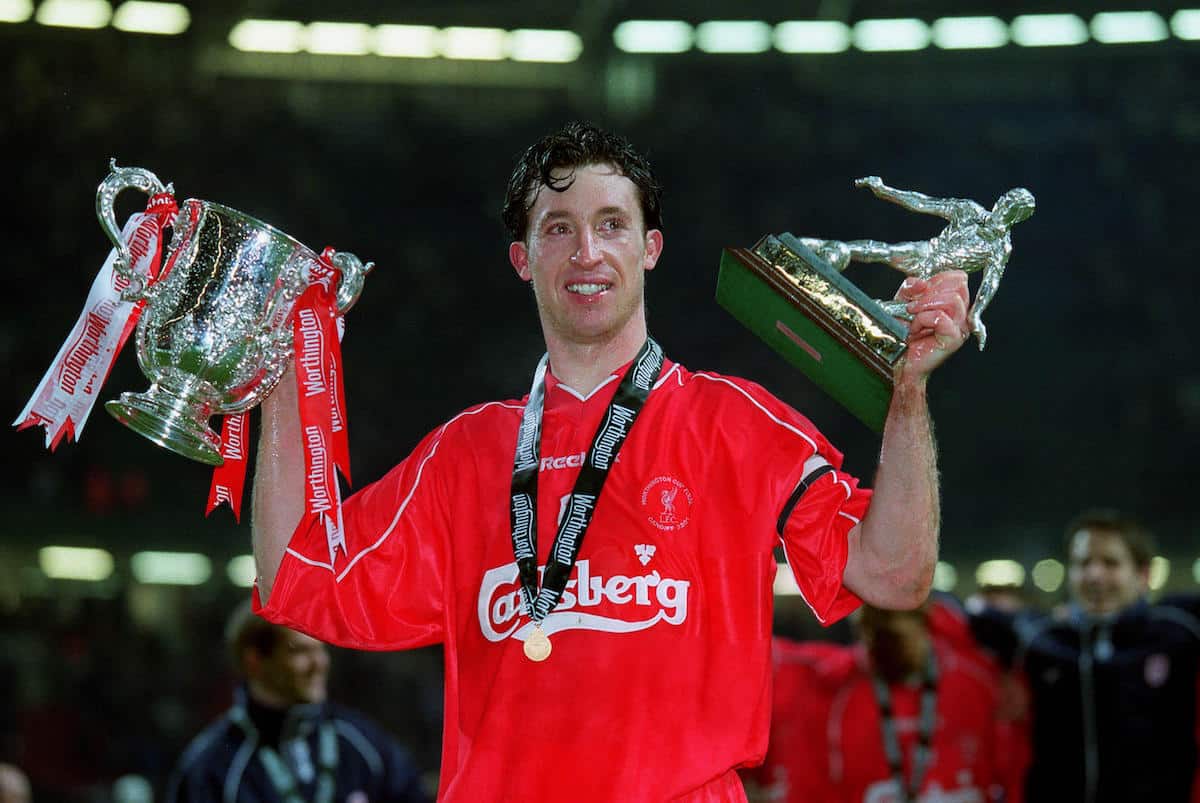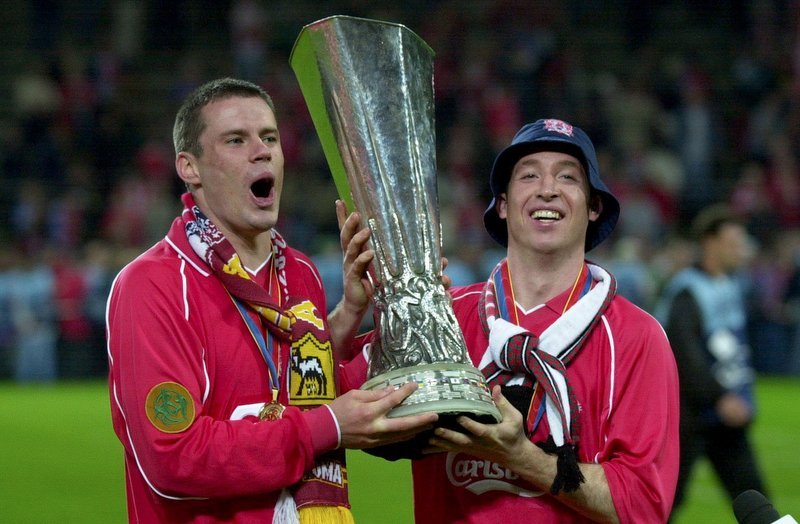In 2001, Robbie Fowler made a £11 million move from Liverpool to Leeds, but he returned five years later.
When Robbie Fowler was sitting at Elland Road in November 2001, speaking to the media for the first time since his unexpected £11 million transfer from Liverpool, he struck an unusually reserved figure.

After his exploits at Anfield, when he scored 171 goals in 330 games, he earned the nickname “God” from his devoted supporters on the Kop.
He started his career in a spectacular way, scoring five goals in the League Cup against Fulham in September 1993. He would go on to have one of the most amazing beginnings to a top-flight career in history, scoring 13 goals in 12 matches.
Eight years later, in October 2001, he would score what seemed to be his last goals for Liverpool as part of a signature hat-trick in a 4-1 victory against Leicester City.
Goals have a way of making a player lovable to any group of fans, but it wouldn’t be incorrect to argue that the Toxteth native stood out from his peers due to his characteristically Scouse lack of pretense; his mischievous demeanor belied a modest and surprisingly humble personality that seemed to transcend his superstar status.

All that was so unusual about Fowler was that, astonishingly for a player of his caliber, he seemed so much like the supporters who would swarm the Anfield terraces each week to watch him and his teammates win.
But injuries would start to catch up with him after three seasons of unstoppable brilliance in front of goal, during which he had emerged as one of the most gifted forwards of his generation by scoring over 30 goals in a single season—a record that has never been surpassed.
A teenage Michael Owen would emerge as Liverpool’s first-choice attacker in Fowler’s absence, something that would have been unthinkable only a few years before at Fowler’s peak. Fowler would never again hit the heights of his amazing first three seasons at Anfield.
In hindsight, Fowler’s tenure at Anfield came to an end in 1998 when Gerard Houllier was appointed manager of Liverpool; the “Toxteth Terror” left Merseyside with a whimper after being replaced at halftime against Sunderland in November 2001, the last game of his first stint at Anfield.

It would be a lengthy and agonizing death, unworthy of a player who had given the devoted Kop such beauty in the previous administration under Roy Evans.
Despite this, Fowler’s decline would occur during a period of abundant success for Houllier’s team, which included an unparalleled cup treble in the 2000–01 campaign. During this run of success, he would score goals against Alaves in the UEFA Cup final and Birmingham City in the League Cup final.
Even with his achievements, Fowler would fall more down the ladder and, by the time he left Merseyside, the Frenchman’s minds were occupied with the previously mentioned Owen, Emile Heskey, and Jari Litmanen.
Thus, a shift was in store for a guy who is still regarded as England’s most gifted goal scorer.

It may have been preferable for any other athlete in Fowler’s situation to break up with him. Nevertheless, it didn’t sit well to see a player who was so highly regarded by the Anfield supporters traded to a direct opponent.
When Reds fans learned of Fowler’s departure, they likely felt the same sense of shock and despair as Fowler had when he was seated next to David O’Leary, their new manager, in November 2001.
Although most Liverpool players accepted the decision, Houllier’s success more than made up for the supporters’ outrage at losing their favorite son.
Leeds had the financial capacity and aspirations to compete in both the Premier League and the Champions League at the time. Unfortunately for Fowler, however, his time in Yorkshire proved to be short lived.

It would be difficult to see Fowler’s tenure at Leeds as a failure. In 33 appearances, he would score a very respectable 14 goals. But after only 18 months, he was again on the move, joining Kevin Keegan’s Manchester City in January 2003 as the Yorkshire team’s financial troubles got out of hand. The club he had joined had since been plagued by financial issues.
To be honest, it never seemed right, no matter how well he performed at Leeds and Manchester City.
Following the publication of his first book in September 2005, the “Toxteth Terror” would conduct some unsettlingly nostalgic interviews with the Guardian in which he looked back with sorrow on what may have been. It seems that he felt the same way as the Anfield supporters, at least not for the first time.
At thirty-nearly, Fowler was starting to see his time at Liverpool as the end of an era in his life.
“Obviously, deep down, I was thinking maybe it could have been me lifting the trophy, I could have been there on the pitch, but I never moped about it,” he said after Liverpool won their fifth European Cup in Istanbul.
“I don’t want to say in an ideal world – because that would be disrespectful to Leeds and Manchester City – but I do wonder what might have happened [if he had stayed at Liverpool]. If things had been going according to my plan, I would still be there.”

Similar to Fowler, it seemed as if the man known as the Kop as “God,” although being a hero at Anfield, had moved on and the team was going on without him after winning the Champions League in 2005.
It’s only natural to feel optimistic after winning the European Cup, and Liverpool started the 2005–06 season hoping to add additional trophies to their collection.
But with the team lacking goals after the somewhat successful additions of Peter Crouch and Fernando Morientes, and with as few options for reinforcements as you would usually find in the January window, manager Rafa Benitez was searching for a forward who could provide the goals his team sorely needed as the Spaniard prepared to launch the first league title challenge of his reign.

The next development would rank among the most unexpected—yet unquestionably touching—transfers in Liverpool’s recent history.
Because “God” was going to finish his second coming in the beginning of 2006.
Suddenly, the former Valencia manager would choose a player that Stuart Pearce, the manager of Manchester City, had ranked beneath Darius Vassell and the seasoned Andy Cole.
To be honest, Liverpool was never going to find a permanent solution in re-signing Fowler.
That being said, the signing of Anfield’s god was always going to prove to be a genius in terms of reviving a team that was finding it difficult to compete with its domestic rivals for an elusive 19th league championship.
The Anfield favorite would once again demonstrate Fowler’s talent for expressing what his devoted Reds supporters were thinking when he likened his state of mind to that of “a kid on Christmas morning.”
“Since I have left, deep down I have always wanted to come back and it has been a long time but I’m glad to say I’m back now,” said Fowler.
“Leaving was probably one of my biggest regrets I have had in football.
“I’m chuffed to bits. I mean, I can’t really believe it’s happened again so I’m ecstatic to be honest.”
In January 2006, Fowler would reveal his regrets regarding his departure under Gerard Houllier in 2001.

“One of my biggest regrets in football is that, in my last match before I left, I was taken off at half-time against Sunderland and never really had a chance to say goodbye,” he said.
Honestly, it never seemed right when he left. Fortunately, Anfield was given the opportunity to rectify the lackluster way he left Merseyside the first time around on May 13, 2007.
After playing 88 minutes in the season’s last league game against Charlton Athletic, Fowler was showered with cheers as he exited the field.
It was a happily ever after that was worthy of the prodigal son of the Kop family.
God would score 12 goals in 39 appearances, so his second arrival may not have been as spectacular as his first, but it didn’t really matter.
It seemed fitting to return home a guy who had appeared so adrift since leaving Merseyside; it was a masterstroke that no one had predicted.
